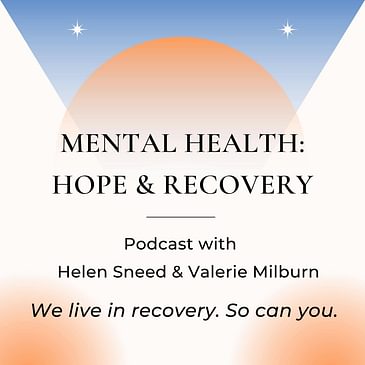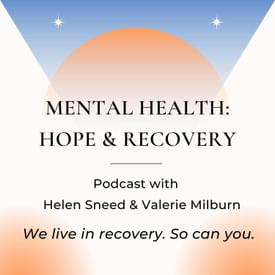Women and Mental Health is an episode with explosive revelations about women and their mental health journeys. The cruel biases of the past, enlightened advances in to the present, promising breakthroughs for future treatment and recovery. Valerie and Helen delve deep into the complex, unique issues of women with mental health challenges, and the long journey of progress over prejudice. What is it like for a woman today as a patient, parent, caregiver, employee? Explore the combinations of therapy, medication, and treatment methods that bring opportunities to women and their loved ones. Do not miss this chance to learn about women, mental health, and new avenues for recovery.
Find Valerie and Helen online at mentalhealthhopeandrecovery.com
Show Notes Topics discussed in this episode include:
· The history of women and mental illness
· Gender differences in mental illness in regard to risk, prevalence, symptoms and treatment
· Treatment methods for women—which are most effective, why, and what are the recent scientific treatment breakthroughs
· Helen and Valerie share how being female has impacted their mental health disorders
Resources mentioned in this episode:
· Wellness Recovery Action Plan -- https://namirockland.org/resources/wellness-recovery-action-plan/
· 2 Lives Podcast -- 2lives.org
· Substance Abuse and Mental Health Services Administration (SAMHSA) Report:
· SAMHSA Recovery Definition: Recovery is characterized by continual growth and improvement in one’s health and wellness while managing setbacks, which are a natural part of life.
Please leave a review!
Learn more about your ad choices. Visit megaphone.fm/adchoices

